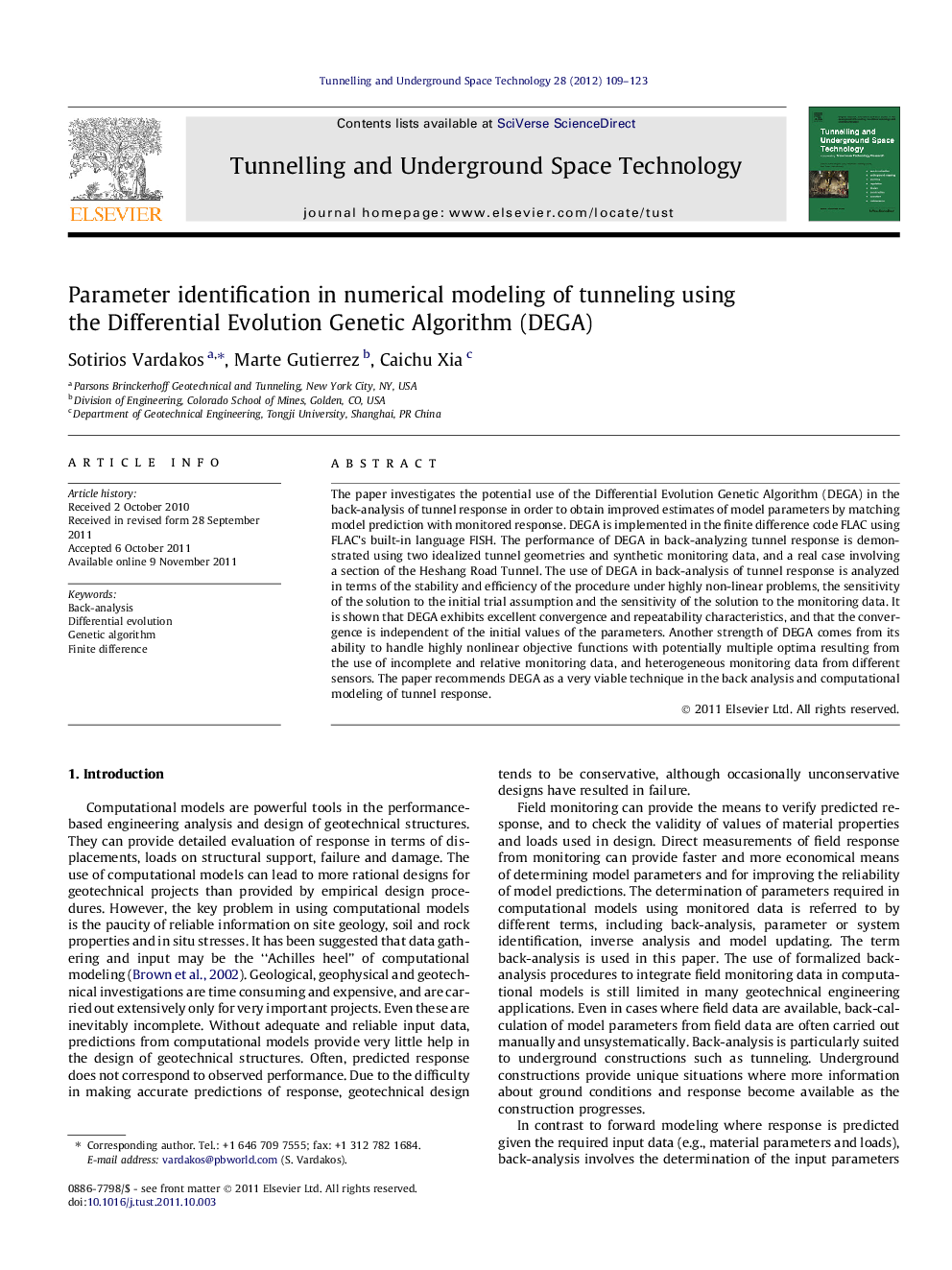| Article ID | Journal | Published Year | Pages | File Type |
|---|---|---|---|---|
| 312481 | Tunnelling and Underground Space Technology | 2012 | 15 Pages |
The paper investigates the potential use of the Differential Evolution Genetic Algorithm (DEGA) in the back-analysis of tunnel response in order to obtain improved estimates of model parameters by matching model prediction with monitored response. DEGA is implemented in the finite difference code FLAC using FLAC’s built-in language FISH. The performance of DEGA in back-analyzing tunnel response is demonstrated using two idealized tunnel geometries and synthetic monitoring data, and a real case involving a section of the Heshang Road Tunnel. The use of DEGA in back-analysis of tunnel response is analyzed in terms of the stability and efficiency of the procedure under highly non-linear problems, the sensitivity of the solution to the initial trial assumption and the sensitivity of the solution to the monitoring data. It is shown that DEGA exhibits excellent convergence and repeatability characteristics, and that the convergence is independent of the initial values of the parameters. Another strength of DEGA comes from its ability to handle highly nonlinear objective functions with potentially multiple optima resulting from the use of incomplete and relative monitoring data, and heterogeneous monitoring data from different sensors. The paper recommends DEGA as a very viable technique in the back analysis and computational modeling of tunnel response.
► Differential Evolution Genetic Algorithm (DEGA) is proposed for back-analysis. ► DEGA is coupled with FLAC for constrained parameter identification. ► Performance of DEGA studied using synthetic data and an actual field case. ► DEGA performed well for multivariate nonlinear back-analysis problems. ► DEGA exhibited good efficiency and repeatability of results.
